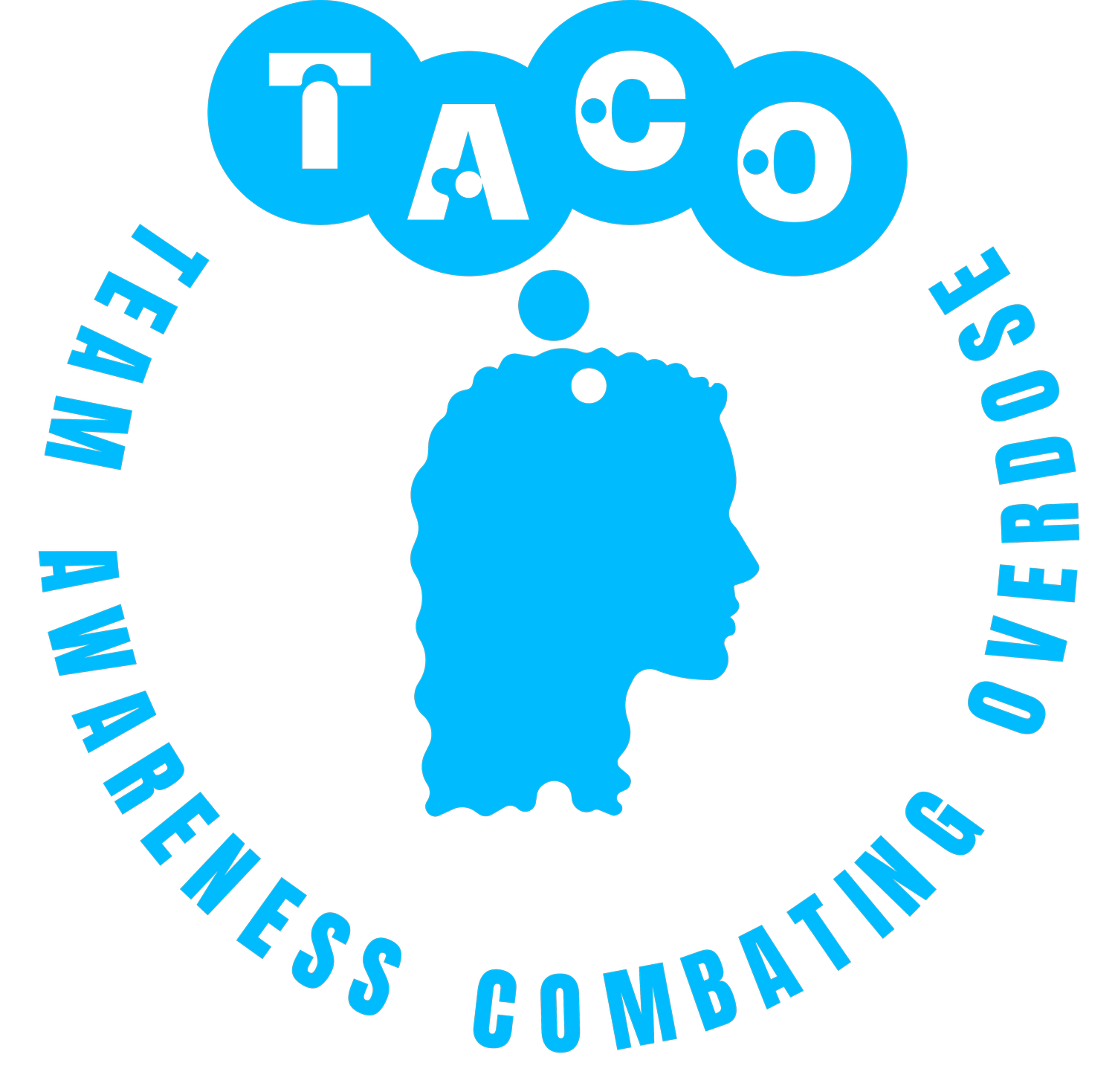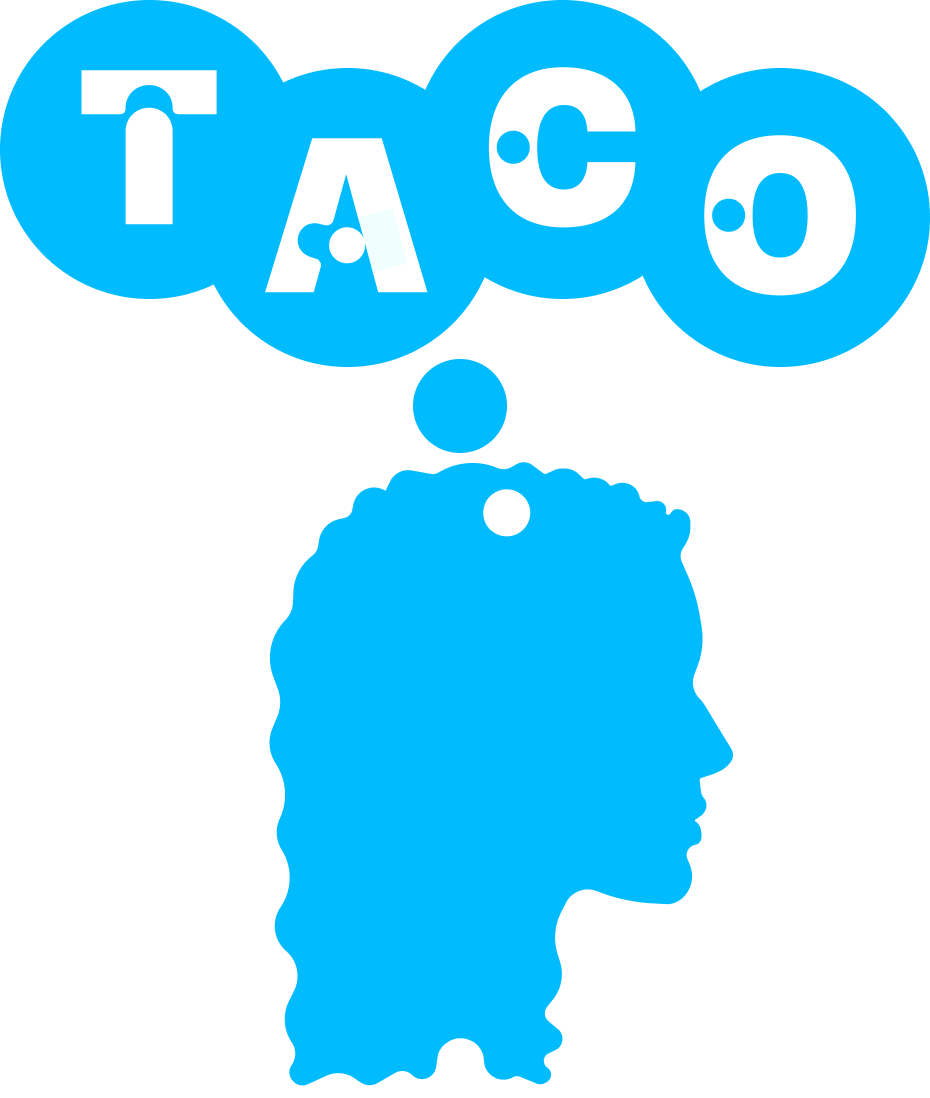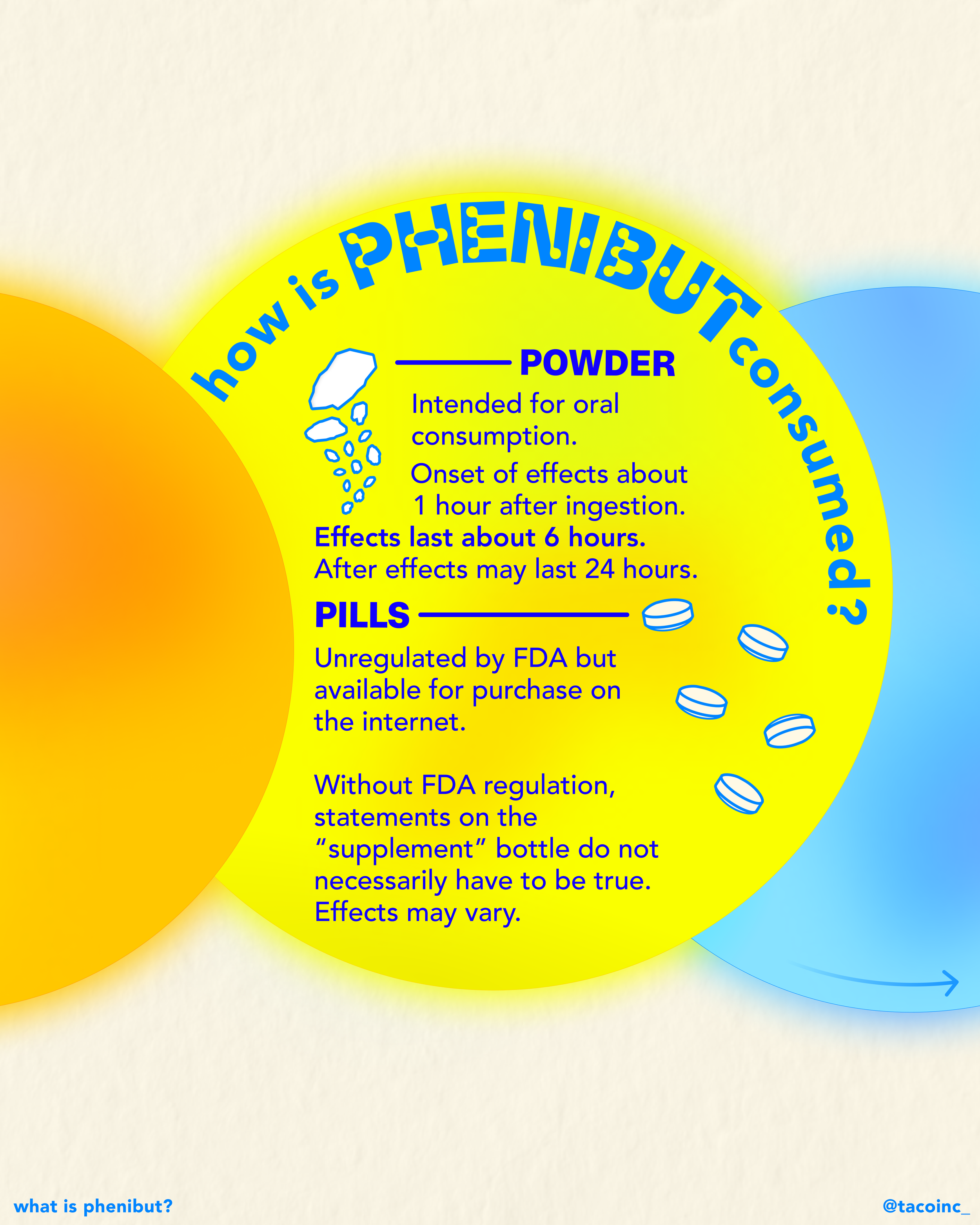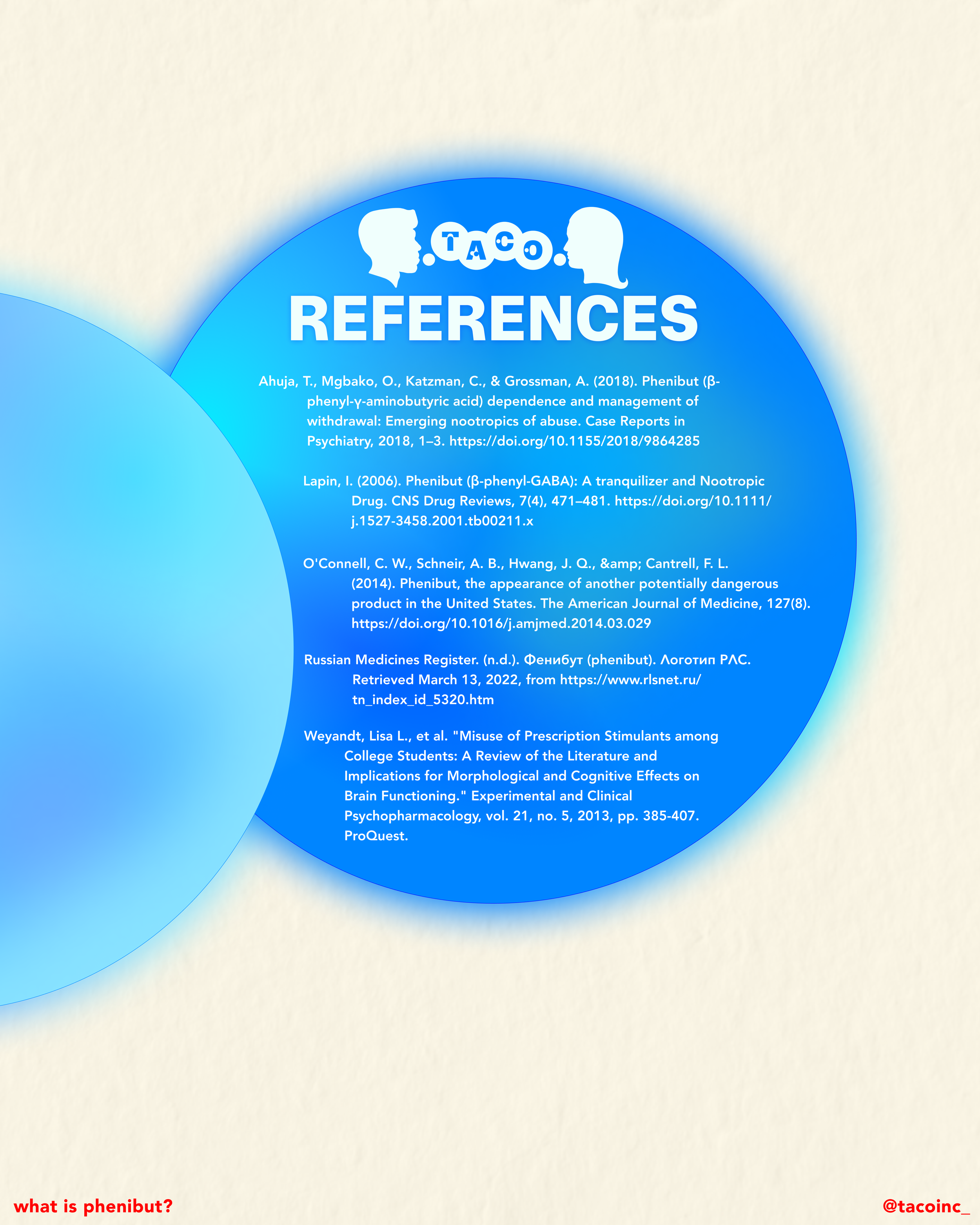What is Phenibut?
WHAT IS PHENIBUT?
Phenibut (Fen-ib-yoot) is a tranquilizer that is described as having nootropic properties. Nootropics are substances that are thought to boost brain performance and enhance cognition and memory, however this has not been thoroughly studied for verification that Phenibut has these properties. In the U.S., Phenibut is unregulated as a “supplement.”
The calming sensations start to kick in after about an hour and may last up to 6 hours. Phenibut mimics the neurotransmitter GABA by binding to GABA receptors in the brain and activating them. (Alcohol acts similarly). GABA is the primary inhibitory chemical in the brain, so, when Phenibut mimics it, there are depressive effects - systems start slowing down.
Also known as Pheni and Noofen, Phenibut is usually taken by mouth in capsule form. It was originally developed by Russian chemists in the 1960s to treat anxiety, depression, insomnia, and PTSD. The therapeutic dose ranges from 250-750mg, up to 3x a day.
When taken in larger, recreational doses, potential effects include euphoria, social ability and stimulation - however these have not been thoroughly verified or studied in US users. Patients who use Phenibut repeatedly for long periods of time may develop a tolerance - meaning they need a larger dose of Pheni to achieve the same effects of a previously lower dose.
Withdrawal symptoms such as anxiety, depression, and nausea have also been reported. Though the exact amount of Phenibut needed to overdose is not well-known, in one case, a man was left unconscious and hospitalized after taking 3g of Phenibut a day for 4 days in a row.
High doses of Phenibut can have sedative effects and may even lead to unconsciousness. Be careful using Pheni along with other common depressants like alcohol and benzos. Combining these drugs can cause loss of consciousness more quickly than expected. Lastly, always use fentanyl test strips when you do not buy your Phenibut from a store.






